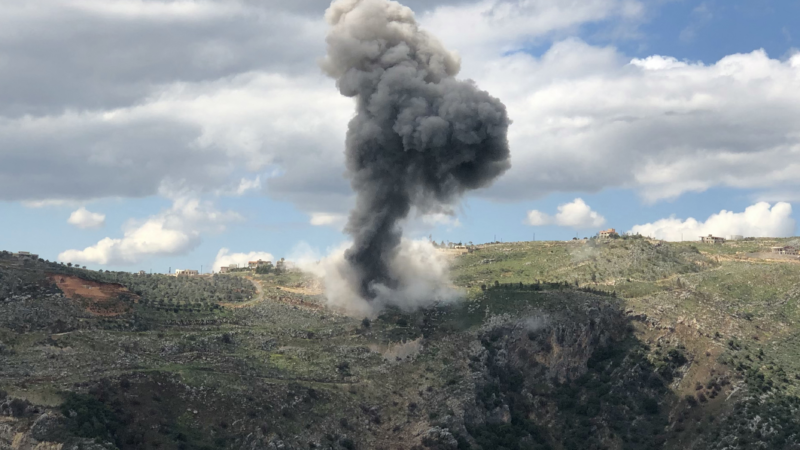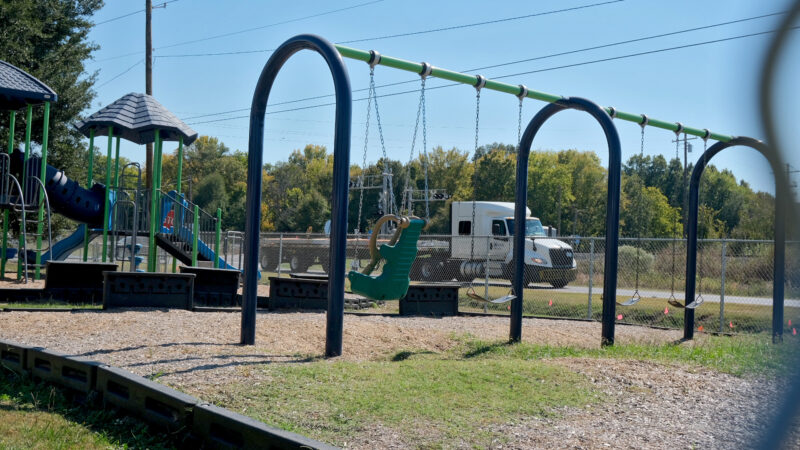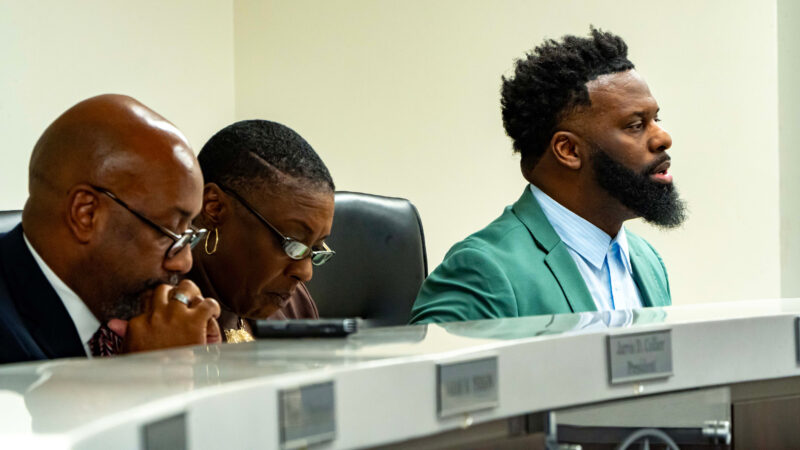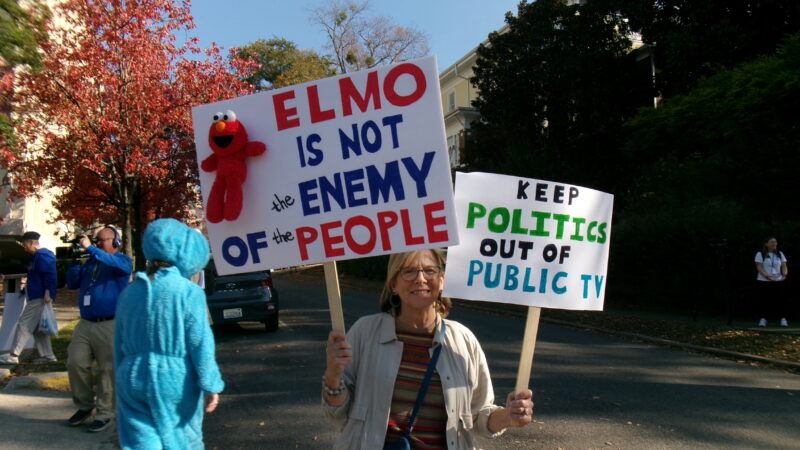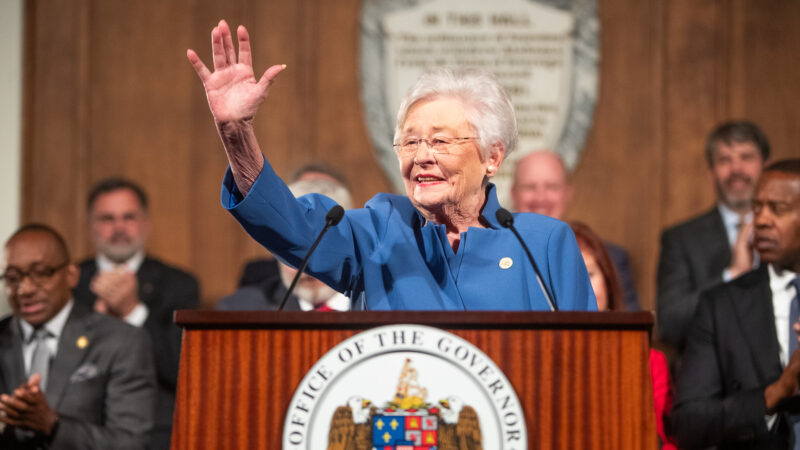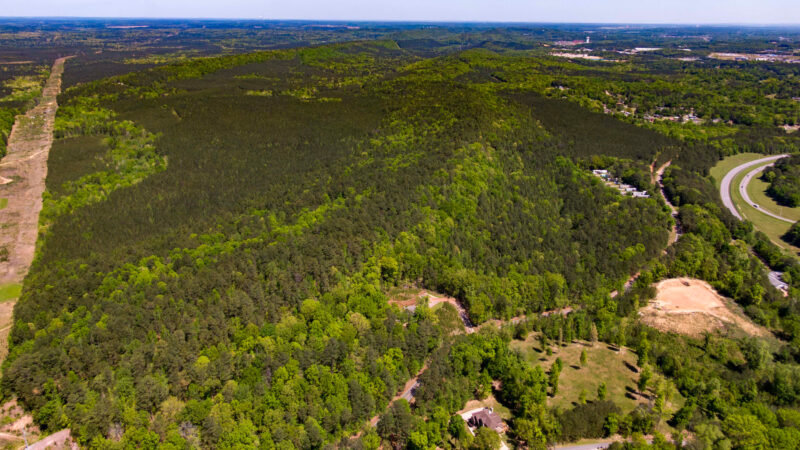Israel strikes multiple sites in southern Lebanon in response to rocket attack
TEL AVIV, Israel — The Israeli military said it struck multiple Hezbollah targets in southern Lebanon, after several rockets were fired from there toward northern Israel Saturday morning. Lebanese health officials said two people had been killed, including a child, and several more were injured.
Sirens rang out in the northern Israeli city of Metula around 7:30 a.m. Saturday, after a relatively quiet several months. The Israeli military said three rockets were launched from Lebanon, and all were intercepted. The Lebanese militant group Hezbollah denied responsibility in the attack, and reiterated its commitment to the ceasefire agreement with Israel in place since November of last year.
Prime Minister Benjamin Netanyahu and Defense Minister Israel Katz instructed the Israeli military to take “powerful action” in response, saying that the Lebanese government bears responsibility for any rockets launched from its territory.
In a statement, Lebanese Prime Minister Nawaf Salam warned that renewed military activity with Israel could “drag the country into a new, devastating war.” He asked Lebanon’s defense minister to take all measures necessary to show that the state holds authority over both military and peaceful actions.
The Lebanese army announced that it had found three of what it called “primitive rocket launchers” possibly used in the attack and dismantled them, saying that the military continues to “take the necessary measures to control the situation in the south.”
A fragile ceasefire between Israel and Hezbollah has been in effect since late last November, after more than a year of low-intensity war between the two led to a destructive and deadly Israeli ground invasion into Lebanon. Under that ceasefire deal, Hezbollah was to dismantle all weapons in southern Lebanon and Israeli troops were to withdraw from the region, with the Lebanese army taking over to maintain calm. The agreement also specifies that Lebanon’s government is responsible for dismantling all military infrastructure in southern Lebanon and confiscating all unauthorized arms.
The truce between Hezbollah and Israel has been tenuous. Since November, Israel has carried out nearly daily strikes on what it says are Hezbollah targets, and Israel has said attacks will continue if needed to keep the group from rearming. Hezbollah has not fired back at Israel during that time. And the Israeli military is still occupying five locations in southern Lebanon — past the scheduled time of full withdrawal — which the Lebanese government says is a violation of the country’s sovereignty and against the ceasefire agreement.
In response to Saturday’s exchange of fire, the United Nations peacekeeping force in Lebanon, known as UNIFIL, said it was alarmed by the possible escalation of violence in the area.
“We strongly urge all parties to avoid jeopardizing the progress made, especially when civilian lives and the fragile stability observed in recent months are at risk,” it said in a statement. “Any further escalation of this volatile situation could have serious consequences for the region.”
Yanal Jabarin contributed to this report from Jerusalem, Ahmed Abuhamda from Cairo and Jawad Rizkallah from Damascus.
Judge orders new Alabama Senate map after ruling found racial gerrymandering
U.S. District Judge Anna Manasco, appointed by President Donald Trump during his first term, issued the ruling Monday putting a new court-selected map in place for the 2026 and 2030 elections.
Construction on Meta’s largest data center brings 600% crash spike, chaos to rural Louisiana
An investigation from the Gulf States Newsroom found that trucks contracted to work at the Meta facility are causing delays and dangerous roads in Holly Ridge.
Bessemer City Council approves rezoning for a massive data center, dividing a community
After the Bessemer City Council voted 5-2 to rezone nearly 700 acres of agricultural land for the “hyperscale” server farm, a dissenting council member said city officials who signed non-disclosure agreements weren’t being transparent with citizens.
Alabama Public Television meeting draws protesters in Birmingham over discussion of disaffiliating from PBS
Some members of the Alabama Educational Television Commission, which oversees APT, said disaffiliation is needed because the network has to cut costs after the Trump administration eliminated all funding for public media this summer.
Gov. Kay Ivey urges delay on PBS decision by public TV board
The Republican governor sent a letter to the Alabama Educational Television Commission ahead of a Nov. 18 meeting in which commissioners were expected to discuss disaffiliation.
A proposed Bessemer data center faces new hurdles: a ‘road to nowhere’ and the Birmingham darter
With the City Council in Bessemer scheduled to vote Tuesday on a “hyperscale” data center, challenges from an environmental group and the Alabama Department of Transportation present potential obstacles for the wildly unpopular project.

